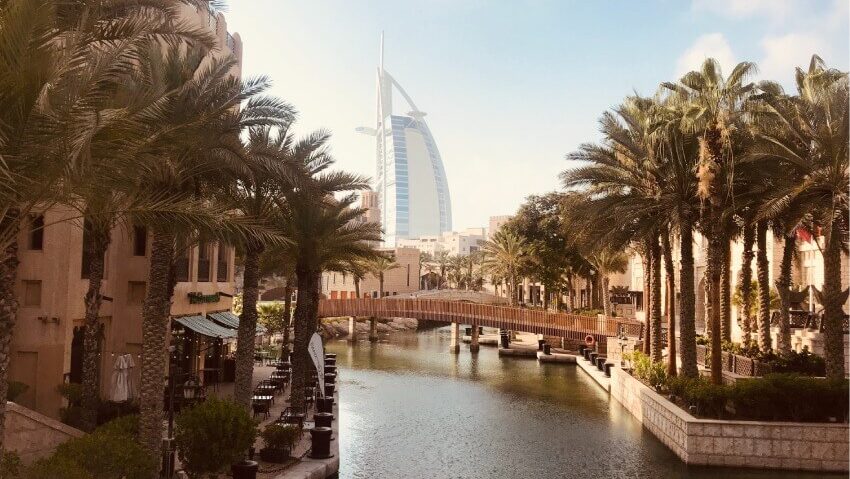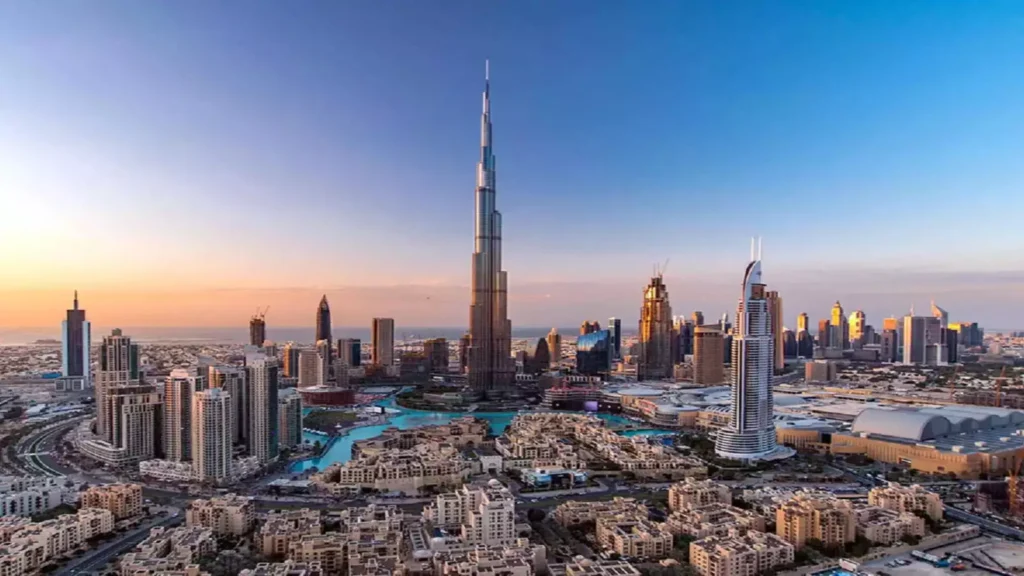Dubai, often considered the jewel of the United Arab Emirates (UAE), has rapidly transformed from a small desert city to a global powerhouse in finance, tourism, and innovation. This transformation has captured the attention of the world, particularly due to its unique economic model that allows it to thrive without imposing personal income taxes. So, how does Dubai manage to generate immense wealth, sustain its growth, and continue to prosper without relying on one of the most common sources of government revenue—personal income tax?
Dubai’s path to financial success is rooted in a combination of strategic economic diversification, a business-friendly environment, and ambitious infrastructure projects that drive global investment. Let’s take a closer look at the key factors that contribute to Dubai’s economic prowess despite the absence of personal income tax.
A Visionary Leadership
One of the primary reasons Dubai has been able to flourish is its visionary leadership. His Highness Sheikh Mohammed bin Rashid Al Maktoum, the Ruler of Dubai, has been instrumental in shaping the emirate into a global metropolis. Under his guidance, Dubai embraced a bold strategy of diversification—moving away from oil dependence and focusing on sectors like real estate, tourism, finance, aviation, and technology.

The leadership’s foresight in building a robust infrastructure, establishing free zones, and creating world-class amenities has positioned Dubai as a magnet for international talent, investment, and businesses. By prioritizing the long-term growth of the emirate, Dubai has established itself as a hub for multinational corporations, financial institutions, and entrepreneurs seeking a tax-efficient and thriving business environment.

The Power of Free Zones
Dubai has strategically developed numerous free zones, which play a vital role in its economic success. These free zones offer businesses a wide array of incentives, including 100% foreign ownership, exemption from customs duties, and no personal or corporate taxes for a specific period. The absence of personal income tax in these zones, coupled with low or zero taxes on corporate income, makes Dubai an attractive location for both local and international businesses.
Notable free zones such as the Dubai International Financial Centre (DIFC), Dubai Internet City, and Jebel Ali Free Zone (JAFZA) provide companies with tax advantages and regulatory flexibility. In these zones, companies are allowed to operate with minimal restrictions, making it easier for them to set up, expand, and thrive. The free zones also encourage innovation and entrepreneurship, fueling Dubai’s growth as a global business hub.
Revenue from Other Sources
While Dubai may not levy personal income tax, it still generates significant revenue through a variety of other means. One of the key sources of income for the emirate is the oil and gas sector, which remains an important contributor to the UAE’s overall economy. However, Dubai’s leadership has taken deliberate steps to reduce its dependence on oil revenues, and this shift has been crucial in diversifying the economy and creating multiple streams of income.
Dubai generates substantial revenue from sectors such as real estate, tourism, and trade. Real estate development in Dubai has been a major driver of wealth creation, with iconic structures like the Burj Khalifa, Palm Jumeirah, and Dubai Marina attracting both international investors and visitors. The real estate sector not only contributes to government revenue through land sales and property taxes but also stimulates related industries such as construction, hospitality, and retail.
Tourism is another key sector that fuels Dubai’s economy. The emirate has positioned itself as a leading global tourism destination, offering world-class shopping, entertainment, and cultural experiences. Dubai’s strategic investments in infrastructure, such as the Dubai International Airport (DXB), which is one of the busiest airports in the world, ensure that it remains a global travel hub. The tourism sector, alongside events like the Dubai Shopping Festival and Expo 2020 (now Expo 2021), brings in billions of dollars in revenue annually.
Trade is also a cornerstone of Dubai’s economic success. With its strategic location between East and West, Dubai has become a critical trade and logistics center. The Jebel Ali Port is the largest in the Middle East and is one of the busiest ports in the world. Additionally, Dubai’s position as a key gateway to the Gulf region allows it to benefit from trade agreements, customs duties, and the growth of regional commerce.
A Global Financial Center
Dubai has made a conscious effort to develop its financial sector into a global powerhouse. The Dubai International Financial Centre (DIFC), established in 2004, is one of the world’s most important financial hubs, providing a platform for international financial services companies. DIFC operates under its own legal and regulatory framework, which is modeled after international standards. This autonomy allows businesses operating in DIFC to enjoy the benefits of a tax-free environment, as well as access to a stable and growing financial ecosystem.
DIFC’s success has been pivotal in attracting multinational banks, investment firms, and insurance companies to establish their regional headquarters in Dubai. The financial services sector is a significant contributor to Dubai’s GDP, and it continues to attract global talent and capital, enhancing the emirate’s status as a center for global finance.
The Role of Tourism and Real Estate
Tourism plays a critical role in Dubai’s economy, and the government has been proactive in creating an environment that attracts millions of visitors each year. Dubai is home to some of the world’s most luxurious hotels, resorts, shopping malls, and cultural landmarks. From the world-renowned Burj Khalifa to the sprawling Dubai Mall, the city offers an array of experiences that make it an ideal destination for leisure and business travelers alike.
Real estate development has also been a major economic driver. Dubai’s skyline is dominated by some of the tallest and most architecturally unique buildings in the world, attracting investors from across the globe. The property market in Dubai generates substantial revenue through property sales, rentals, and tourism-related real estate ventures, further boosting the economy.
Attracting Global Talent and Innovation
Dubai’s success as a tax-free city also extends to its ability to attract top-tier talent and foster innovation. The city has been designed to accommodate a global workforce by offering a high standard of living, world-class infrastructure, and a business-friendly environment. The absence of personal income tax serves as an additional incentive for professionals and entrepreneurs to make Dubai their home.
The Dubai government has also introduced various initiatives to encourage innovation and attract tech startups, including the Dubai Future Foundation and Dubai Silicon Oasis. These initiatives provide entrepreneurs with the tools and support they need to launch new businesses, helping to fuel Dubai’s transition into a technology-driven economy.
Sustainable Growth and Future Plans
While Dubai’s lack of personal income tax has been a key factor in its success, the emirate is also focused on sustainable development and long-term economic growth. Dubai is investing heavily in renewable energy, technology, and smart city initiatives to ensure that its future growth is environmentally responsible and economically diversified.
The UAE’s Vision 2021 and Dubai’s Vision 2030 aim to further develop key sectors such as technology, healthcare, and education. These efforts will help ensure that Dubai continues to thrive as a global city, attracting investment, talent, and innovation from around the world.
Conclusion
Dubai’s wealth and prosperity without the reliance on personal income tax can be attributed to a combination of forward-thinking leadership, diversification of its economy, and innovative policies that attract international businesses, talent, and investment. By focusing on free zones, real estate, tourism, trade, and financial services, Dubai has created a sustainable and dynamic economy that continues to thrive in an ever-changing global landscape.
As Dubai moves toward the future, it will undoubtedly remain an economic powerhouse in the region, with its model serving as an example of how a city can prosper through strategic planning, innovation, and a favorable business environment. With continued investment in key sectors and a focus on sustainability, Dubai’s secret to wealth is set to endure for generations to come.
Do follow Uae stories for more Updates
Downtown Dubai Hosts Groundbreaking International Crypto Summit













